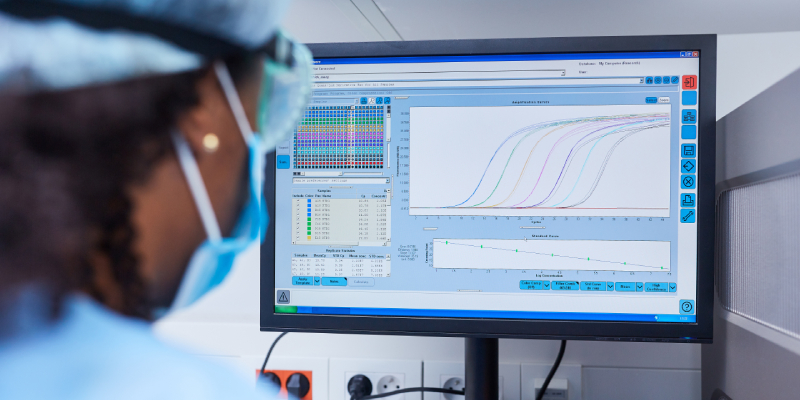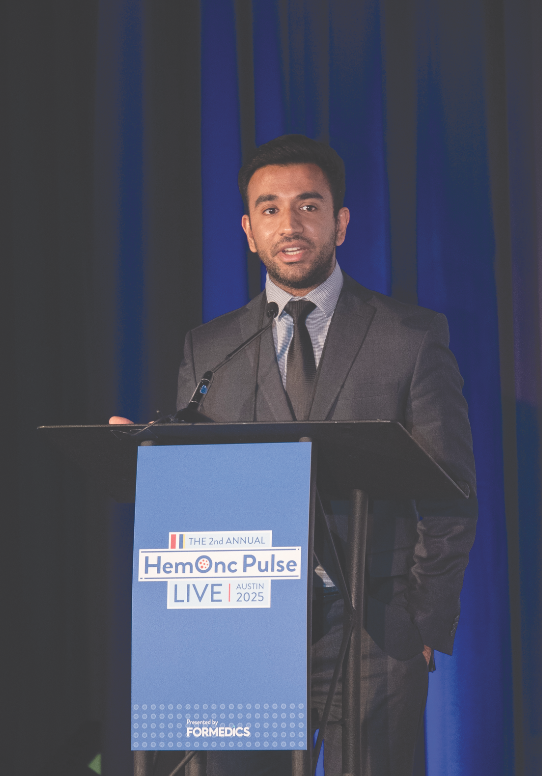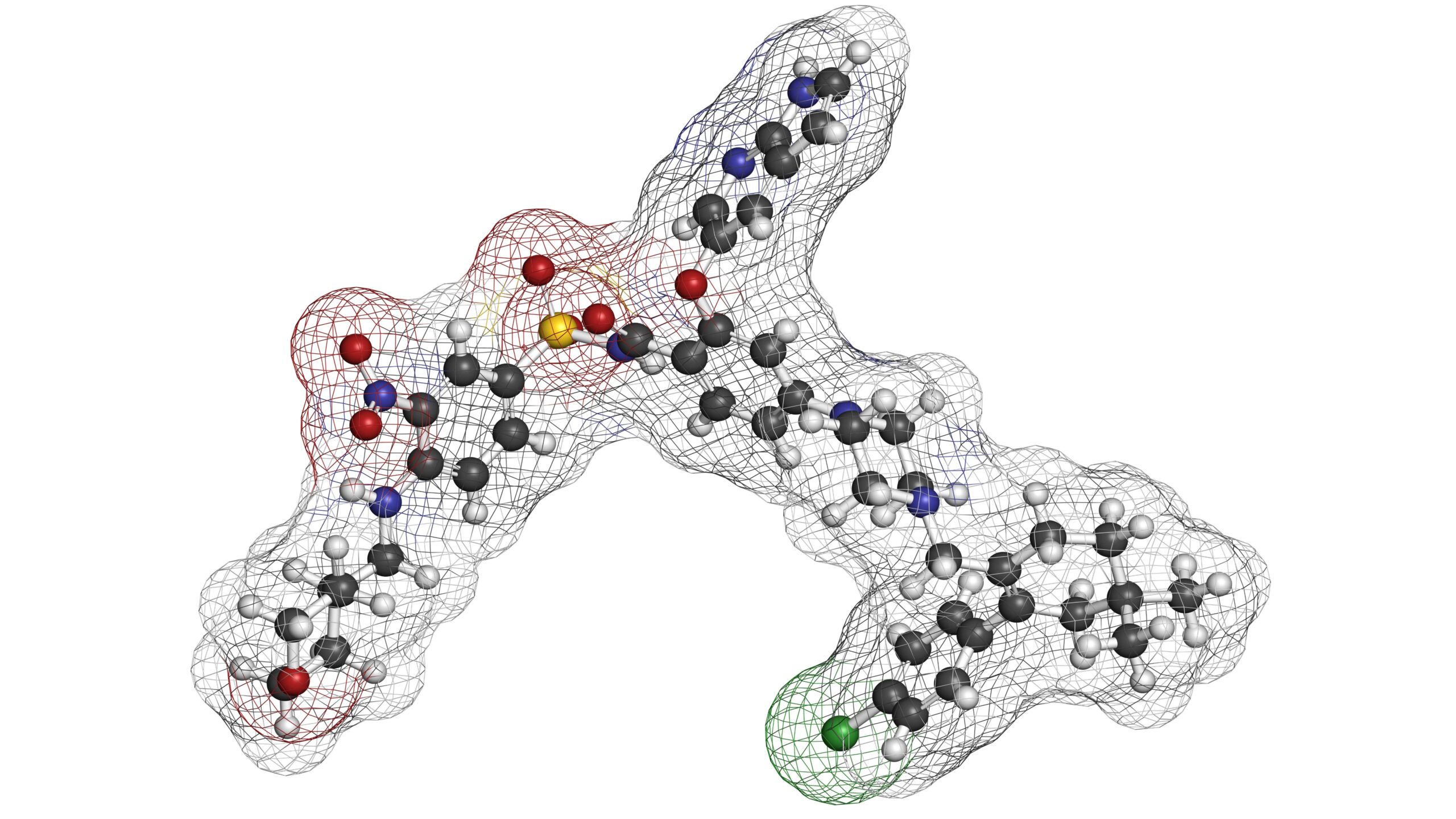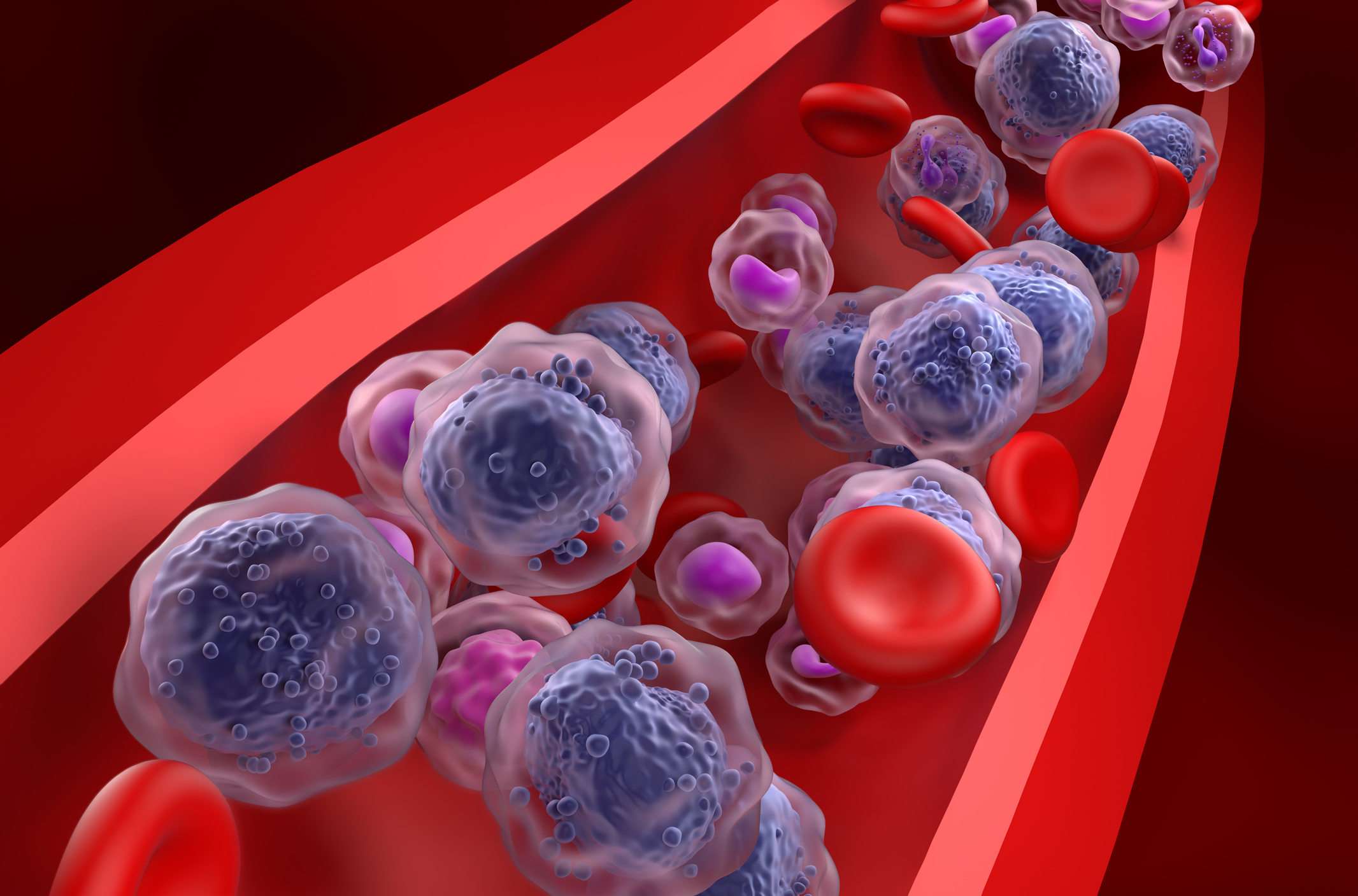
A combination of venetoclax and decitabine was an “effective” regimen that was “well tolerated” in young adults with newly diagnosed adverse-risk acute myeloid leukemia (AML), according to a recent study.
Jundan Xie, a doctoral student at the Soochow University National Clinical Research Center for Hematologic Diseases in China, and colleagues conducted the study.
The multicenter, single-arm phase II trial enrolled 42 adults aged 18 to 59 years who had newly diagnosed AML. The median patient age was 39 years. All patients were eligible for standard induction chemotherapy and met the 2017 European LeukemiaNet (ELN) criteria for adverse risk. The study required patients to have an Eastern Cooperative Oncology Group performance status score of zero to two and adequate renal and hepatic function.
Patients received induction therapy with decitabine 20 mg/m2 on days one through five. They received venetoclax 100 mg on day one, 200 mg on day two, and 400 mg on days three through 28. Patients who had a high FLT3-ITD allelic ratio could receive optional treatment with sorafenib 400 mg twice daily on days three through 28.
Patients who achieved a composite complete remission (CRc) received consolidation therapy with one or two cycles of high dose of cytarabine 2 g/m2 on days one through three. Patients who did not respond or achieved a partial remission received venetoclax 400 mg daily on days one through 28 and decitabine 20 mg/m2 on days one through five of cycle two.
The primary outcome of the study was the CRc rate. Secondary outcomes included overall survival (OS), event-free survival, duration of remission, measurable residual disease (MRD) response, and safety.
The overall response rate was 95% after patients received two courses of induction therapy. Nearly all (93%) of patients achieved a CRc and most (79%) achieved a CRc before receiving cycle two. Of the 39 patients who achieved a CRc, 31 (79%) achieved an MRD-negative response, with 76% achieving an MRD-negative response before the beginning of cycle two.
Hematologic adverse events (AEs) of grade 3 or worse included anemia in 90% of patients, thrombocytopenia in 91% of patients, and neutropenia in all patients. Serious AEs included febrile neutropenia in 26% of patients, pneumonia in 14%, and sepsis in 2%.
“Venetoclax plus decitabine was an effective, low-intensity regimen that was well tolerated for younger adults with newly diagnosed ELN adverse-risk AML,” the study’s authors concluded. “This regimen produced high rates of CR and MRD negativity.”
Reference
Xie J, Bao X, Xue SL, et al. Venetoclax with decitabine as frontline treatment for younger adults with newly diagnosed ELN adverse-risk AML. Blood. 2023. doi:10.1182/blood.2023020102






 © 2025 Mashup Media, LLC, a Formedics Property. All Rights Reserved.
© 2025 Mashup Media, LLC, a Formedics Property. All Rights Reserved.